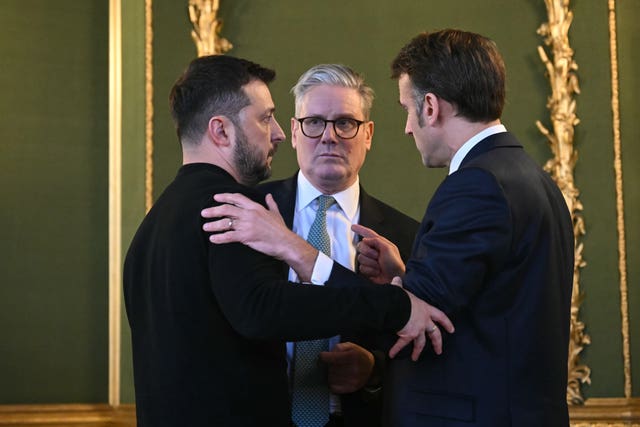Donald Trump’s administration has “got a case” for saying that European nations need to do more to fund and provide their own security, the Defence Secretary has said.
John Healey suggested that the US has laid down a “challenge” which the UK is responding to in its work to put together a coalition of nations that would be willing to defend a peace deal in Ukraine.
Mr Healey’s comments came after the US Signal group chat blunder revealed vice president JD Vance hated “bailing Europe out” and Pentagon chief Pete Hegseth said “European freeloading” was “pathetic”.
The comments in the chat, which inadvertently included a journalist from The Atlantic, were related to US strikes against Houthi rebels in Yemen but come against a backdrop of Mr Trump’s drive to end the war in Ukraine and pull back from commitments in Europe.
It comes as Russia and Ukraine have agreed to pause hostilities in the Black Sea, a move Mr Healey welcomed as a potential “precursor” to a broader ceasefire.
However, there are signals that the US could be willing to ease some sanctions on Moscow as part of a deal.
Asked how he felt about being called a pathetic freeloader, Mr Healey told Times Radio: “I regard it more as a challenge.”

He added: “The Americans have absolutely got a case that on defence spending, on European security, on our support for Ukraine, European nations can and will do more, and the UK is leading the way.”
The UK and France have been leading efforts to convene a group of nations who would contribute to defending a peace deal if one is reached, however US special envoy Steve Witkoff has dismissed the plans for a “coalition of the willing” as “a posture and a pose”.
But pointing to that work, Mr Healey said: “We’re responding to that American challenge for European nations to do more to support Ukraine, and we are, and we’re responding to the requirements of the Ukrainians, who say ‘in the circumstances of a ceasefire, what security guarantees have we got that we won’t have Russia reinvading?’”
Mr Healey also told BBC Radio 4’s Today programme he is “proud that the UK, alongside France, is leading the coalition of the willing, ready to stand by Ukraine in the event of a negotiated peace just as we have through the war”.
On Tuesday it was announced that both Ukraine and Russia had agreed to paused hostilities in the Black Sea, following separate talks between US negotiators and their counterparts from Kyiv and Moscow.
In statements published on Tuesday, the White House said both nations had agreed to “ensure safe navigation” and “eliminate the use of force” in the sea.
However, the US also appeared to signal an intention to ease sanctions on Russian agricultural goods and improve Vladimir Putin’s access to maritime insurance, ports and payment systems.
Asked about the Black Sea agreement, Mr Healey told LBC that “we’ve got to welcome it”.
“We’ve got to see it, I hope, as a precursor deal, the first step if you like, to a broader and comprehensive ceasefire,” he said.
A Number 10 spokesman declined to say on Tuesday whether the UK would follow any easing of sanctions, while the Foreign Office did not address the matter in its official response to the talks in Saudi Arabia.
Military chiefs from the “coalition of the willing” are expected to continue their planning meetings at the UK’s permanent joint headquarters in Northwood, London, throughout the week in preparation for any potential ceasefire deal.




Comments: Our rules
We want our comments to be a lively and valuable part of our community - a place where readers can debate and engage with the most important local issues. The ability to comment on our stories is a privilege, not a right, however, and that privilege may be withdrawn if it is abused or misused.
Please report any comments that break our rules.
Read the rules hereLast Updated: 1st January 1970 12:00 am
Report this comment Cancel